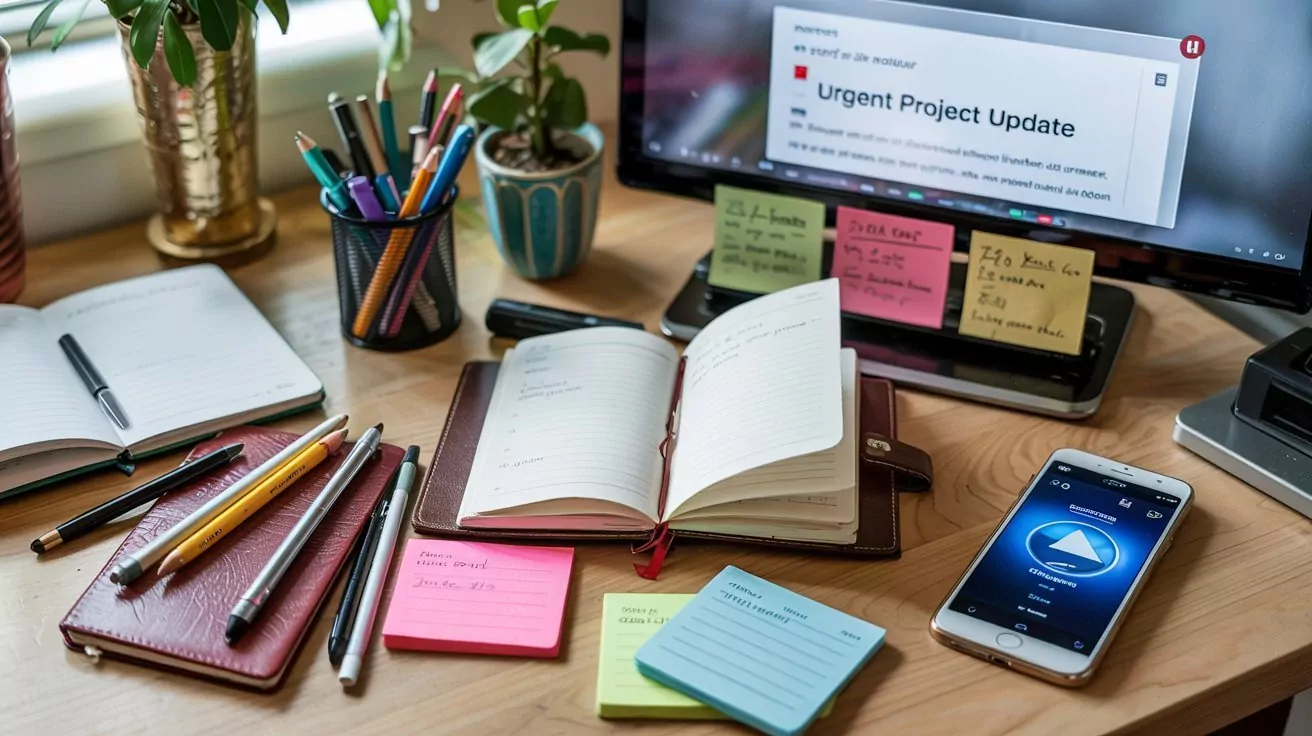The Most Common Time Wasters At Work
And How To Kill Them for Good

Let’s be honest—your day isn’t getting hijacked by “big picture strategy” or “too much hustle.” It’s being chipped away by little distractions and dumb habits that add up to hours lost.
And in today’s work environment, where speed matters and output talks, you can’t afford to waste time chasing your own tail.
Here’s how to spot the usual suspects and shut them down before they wreck your week.
The Meeting Spiral
Yeah, meetings have their place. But let’s not kid ourselves—most are just calendar clutter with a webcam. You know the type—15 people staring blankly while one person rambles. These time-sucks kill flow and eat your most productive hours.
So ask yourself:
Is this meeting necessary?
Do I need to be in it?
Can it be shorter?
If you can’t answer yes to all three, skip it or restructure it.
Better yet, build a culture where people need a real reason to put something on your calendar.
Inbox Chaos
Email’s supposed to help us work—not become the work. But if you’re checking your inbox like it’s a slot machine, waiting for something “important” to land, you’re just reacting all day instead of doing anything that moves the needle.
Here’s the fix: check email in chunks, not constantly. Twice a day is plenty. Create folders or labels if you must, but the real magic is in unsubscribing from the noise. Less junk = less time wasted pretending to be productive.
Multitasking Isn’t a Superpower
Doing five things at once doesn’t mean you’re efficient—it means none of those five things are getting done well. The brain doesn’t actually multitask. It toggles, and that toggle tax is brutal.
Pick one task, do it fully, then move to the next. You’ll get more done and feel less fried by 3 PM.
Mindless Scrolling
Social media and casual browsing aren’t evil—but let’s not pretend that “just five minutes” on Instagram doesn’t turn into a full-on time warp.
If you’re checking TikTok between tasks, you’re burning mental energy on garbage before you’ve even finished your work.
Set guardrails.
Use app timers.
Give yourself breaks, but earn them.
Work first, scroll later.
Simple rules, massive payoff.
Winging Your Day
No plan? No shot. Starting your day without a clear roadmap is a one-way ticket to reacting instead of executing. You end up busy, not productive—and those are two very different things.
Start your morning with three priorities. Not 12. Just three things that need to happen. Write them down. Knock them out. Recalibrate in the afternoon if you need to, but give yourself a north star to follow.
Chatty Coworkers and Gossip
A quick chat by the coffee machine is fine—until it turns into a 30-minute breakdown of last night's reality show or office drama. Friendly conversations are great, but too many interruptions add up.
If you struggle with this, try setting boundaries or using noise-canceling headphones to signal when you're in work mode.
Perfectionism
Spending too much time fine-tuning every detail? Trying to make everything “just right” can keep you from moving forward. The truth is that most tasks don't need perfection—they need completion.
Get it done, then refine it if needed.

Disorganization
Working in a cluttered environment can lead to higher rates of inefficiency.
If you need to spend time searching for paperwork in your office or finding files on your computer, you may waste more time trying to accomplish your goals than if you develop a more effective organizational system.
You can avoid wasting time due to disorganization by decluttering your workspace and strategically organizing key items so you can easily access them when you need them.
Procrastination
When professionals procrastinate completing key to-do list items, they may waste more time than otherwise. This is because procrastination often results in professionals spending time putting off their tasks by worrying about them and rescheduling them continuously.
To avoid wasting time procrastinating, shift your workflow principles and implement a personal policy for taking care of your tasks as they arise.
This policy can help you become more efficient over time and strengthen your reflexes so you can overcome the impulse to procrastinate in the future.
Taking on Coworkers' Tasks
In a collaborative work environment, it's common for professionals to help coworkers by taking on some of their responsibilities.
While doing this can periodically help move workflow forward, it's important to avoid taking on too much so you can save your time and energy for completing your own tasks.
You can overcome this challenge by being reasonable with your expectations of yourself and setting clear boundaries with your coworkers regarding project workflow.
The Most Common Time Wasters at Work
Time is your most limited resource.
Start treating it like the high-value asset it actually is.
By recognizing and addressing these time-wasting habits, you can take control of your workday, stay focused on your goals, and ultimately make the most of your valuable time.
Remember, productivity isn't about doing more things—it's about doing the right things efficiently.

